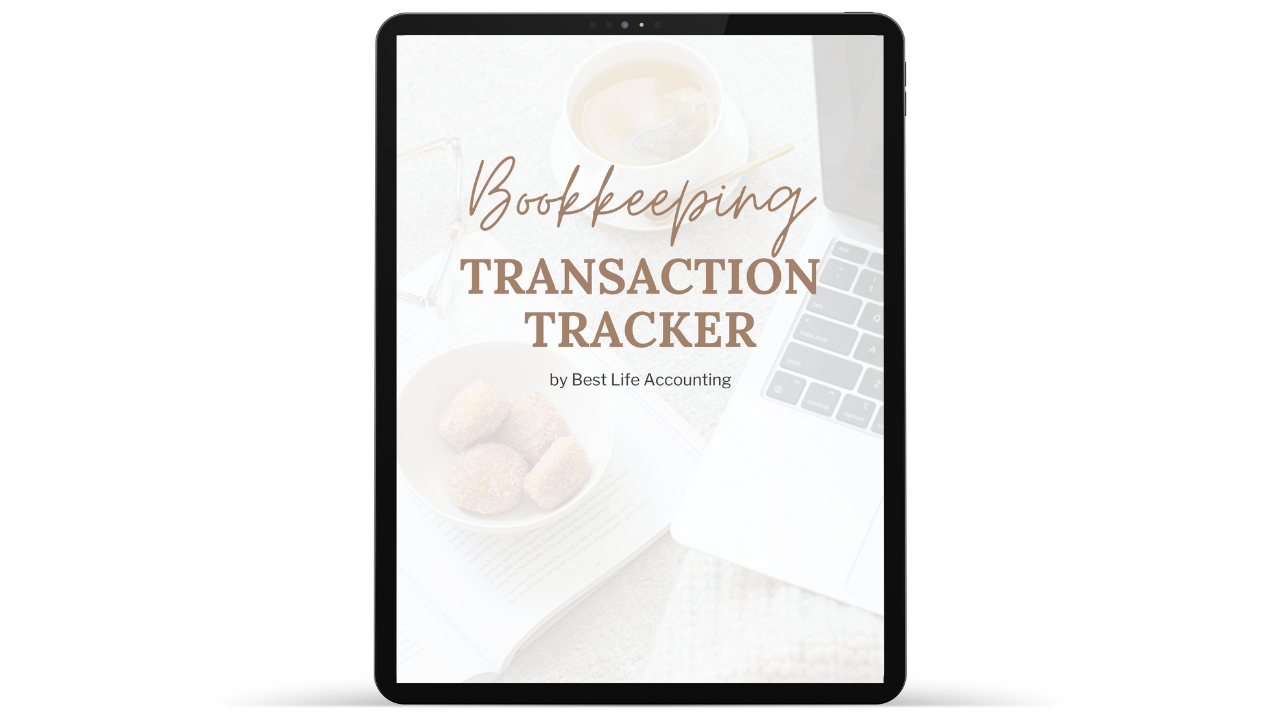Sales Tax for Online Businesses

This post may contain affiliate links, which means I’ll receive a commission if you purchase through my link, at no extra cost to you. Please read the full disclosure here.
Disclaimer: All information on this site is provided for general education purposes only and may not reflect recent changes in federal or state laws. It is not intended to be relied upon as professional, legal, accounting, or tax advice. We strongly encourage you to always consult with a tax or accounting professional about your specific situation before taking any action. Please read our full disclaimer regarding this topic.
When do you have to charge sales tax for online sales? This is the age-old question for online sellers. And it can be tricky! In this post, I will discuss the basics of sales tax, when to collect sales tax as an online seller, paying sales tax on affiliate sales, and how to track your sales in each state.
The complicated part of state sales tax is not knowing how much sales tax is owed, it’s knowing where sales tax is owed. In the US, 50 different states have 50 different sales tax rules. The complexity of this lies in the sheer amount of rules to parse through. Once we get those rules laid out, you’ll just need to track how many sales you have in each state to know where you owe sales tax. It’s so important to make sure you are paying sales tax to the appropriate states to avoid penalties and fees.
The Basics of State Sales Tax
As an online seller, you are required to pay sales tax in your own state (the state you live in). Besides that, you may have “Nexus” in other states and be required to pay sales tax in those states as well. Nexus is defined as having a presence in the state. On paper, it is a very simple concept. However, each state has its own definition of “a presence in the state” and that’s where this gets tricky.
Before the worldwide web, Nexus was pretty simple. You could expect to pay sales tax to a state other than your own if you had a physical presence in that state (i.e., stores, offices, employees, etc). Nowadays, most Americans are buying products online from out-of-state companies. And until 2018, most states could not charge sales tax on those purchases if the seller did not have a physical presence in that state. A Supreme Court ruling changed all of this.
Prior to 2018, Wayfair.com was not required to pay sales tax to South Dakota for sales made to South Dakotans. But Wayfair was selling a lot of products to South Dakotans and SD wanted their piece of the pie. The case went to the Supreme Court in 2018 and South Dakota won. The precedent of Nexus went from just a physical presence in a state, to now a physical and economic presence.
Economic presence means that if you meet a certain threshold of sales in a particular state, you have Nexus in that state and owe tax on sales made in that state. Each state has its own threshold, which we’ll discuss below.
State Sales Tax for Your Online Small Business
So here we are, post-2018 Supreme Court ruling, and we have to consider physical and economic Nexus when determining where we owe sales tax.
You have a Nexus in states where your business has:
-
Employees
-
Offices or locations
-
Inventory or a warehouse
-
Is temporarily doing business
-
Sells at trade shows or craft fairs
-
Affiliate links (aka click-through nexus)
-
An economic presence
The first five are pretty simple, and I’m sure you know right away whether or not your business meets that criteria in any given state. The last two are a little tricky and are discussed in detail below.
Click-Through Nexus
Click-through nexus, also known as affiliate nexus, was around before the 2018 Supreme Court ruling. Think of click-through nexus as a referral fee via an online affiliate program.
For example, Sara’s online natural skincare shop is based in California with no stores, employees, etc. in Oregon. She partners with Jessica, a successful blogger based in Oregon, to gain more customers. Jessica references and links to Sara’s products in all blog posts about skincare. In return, Jessica gets 10% of every product sold through her affiliate link. Sara now has nexus in Oregon and will owe sales tax to Oregon once she passes their click-through nexus threshold.
If your business has an affiliate program to increase traffic and sales, you may need to consider paying sales tax to states other than your own based on where your affiliates are located. Luckily, not every state has click-through nexus and this handy blog post from Tax Jar is updated pretty regularly so you can see the most up-to-date thresholds for each state.
Economic Presence
Alright, let’s get back to that story where South Dakota wanted their piece of online sales, the Supreme Court agreed, and economic presence was born. Economic presence says that, in short, you will owe sales tax in a state if your Sales Revenue or Sales Quantity exceeds a specific threshold in that state.
State Threshold Amounts
Thresholds are tricky because there are different thresholds for different states. Like a lot of different thresholds. The Sales Tax Institute and Tax Jar do a great job of keeping this information up to date.
The most popular threshold is $100,000 of sales revenue in that state OR 200 sales transactions in that state, whichever comes first. There is a pretty good chance 200 sales transactions will happen before $100,000 in sales revenue. So be sure to keep an eye out for 200 sales transactions in one state.
As of this writing (April 2021), there are only two states that have a threshold lower than $100,000: Pennsylvania and Washington. Both have a $10,000 threshold, but after $10,000 of sales, simply complete the reporting requirements to avoid paying sales tax until you hit the $100,000 threshold. See the Department of Revenue websites or the Sales Tax Institute to view those reporting requirements.
State Threshold Timelines
States also differ on when you hit the threshold and when you start paying. Some states look at the entire previous year, while some look at the current year to date. Some states require you to start paying sales tax with the next transaction after meeting the threshold, while some require it 30 days after meeting the threshold. Again, I direct you to this super helpful chart.
Essentially, if you are nowhere near $100,000 in online sales or 200 online transactions in a specific state (other than PA and WA), you will not need to pay sales tax in that state. Keep in mind that physical presence still applies. If you have employees, inventory, locations in a state other than your own, you will need to pay sales tax in that state.
Once you’re getting close to 200 sales transactions or $100,000 sales revenue in any given state (other than your own), start looking at this chart and reviewing that state’s sales tax website to confirm when you’ll need to start collecting and remitting sales tax.
I know this is a lot of information and it can seem very daunting to know when to charge sales tax online. If you’re staying organized and up to date on your bookkeeping, it won’t be difficult to know where you need to pay sales tax.









